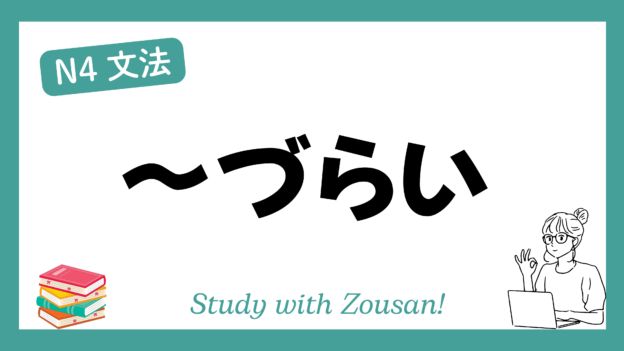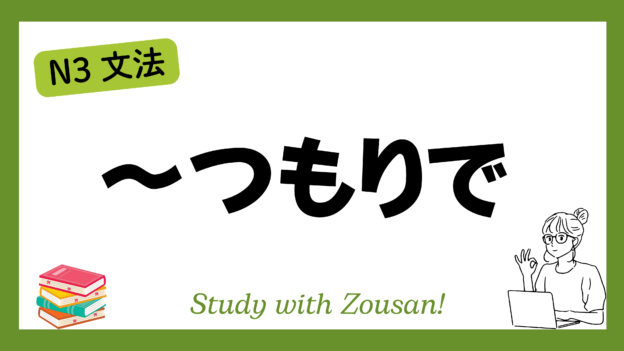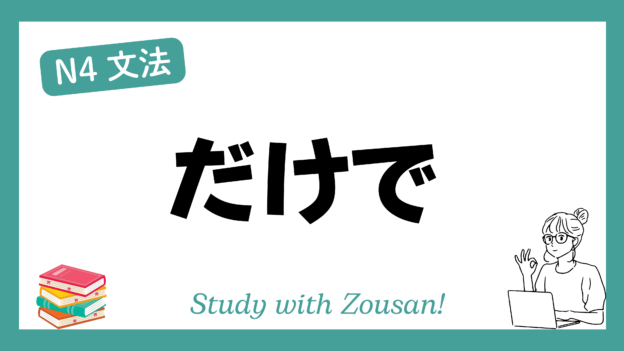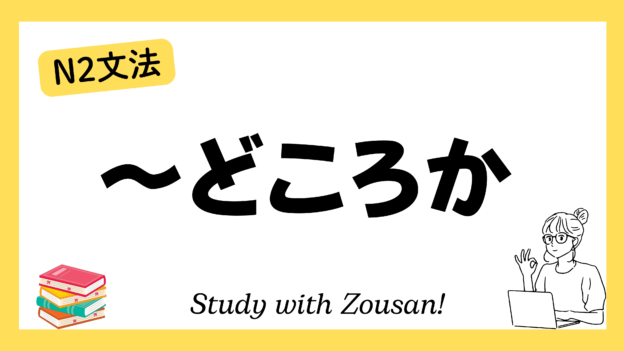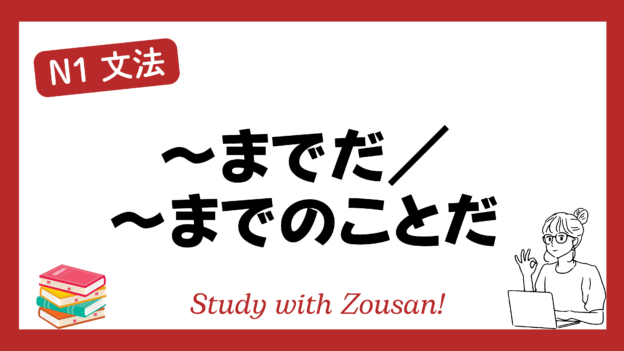N4文法:~づらい
Meaning: “Hard to…” / “Difficult to…”
~づらい is used to describe an action or situation that is difficult to perform, not easy, or challenging due to psychological, emotional, or situational factors. It emphasizes the subjective or perceived difficulty of the speaker.
※Note:
・~づらい is often combined with action verbs to express difficulty in performing an action, typically related to psychological or emotional factors.
・This structure does not emphasize technical or physical difficulty but often relates to feelings of awkwardness, discomfort, or inconvenience.
・~づらい is commonly used in spoken language to express feelings of difficulty in a natural and easy-to-understand way.
Structure:
| Verb (ます stem) |
Example:
-
-
-
🌟 この靴は歩きづらいです。
(この くつ は あるき づらい です)
These shoes are hard to walk in. -
🌟 彼に本当のことを言いづらい。
(かれ に ほんとう の こと を いい づらい)
It’s hard to tell him the truth. -
🌟 このペンは書きづらい。
(この ペン は かき づらい)
This pen is hard to write with. -
🌟 狭い道は運転しづらい。
(せまい みち は うんてん しづらい)
Narrow roads are hard to drive on. -
🌟 彼女の名前は覚えづらい。
(かのじょ の なまえ は おぼえ づらい)
Her name is hard to remember. -
🌟 この状況では決断しづらいです。
(この じょうきょう では けつだん しづらい です)
It’s hard to make a decision in this situation. -
🌟 この薬は飲みづらい。
(この くすり は のみ づらい)
This medicine is hard to swallow. -
🌟 彼と話しづらい雰囲気だ。
(かれ と はなし づらい ふんいき だ)
The atmosphere makes it hard to talk with him. -
🌟 彼の意見は理解しづらい。
(かれ の いけん は りかい しづらい)
His opinion is hard to understand. -
🌟 このドアは開けづらい。
(この ドア は あけ づらい)
This door is hard to open.
-
-



